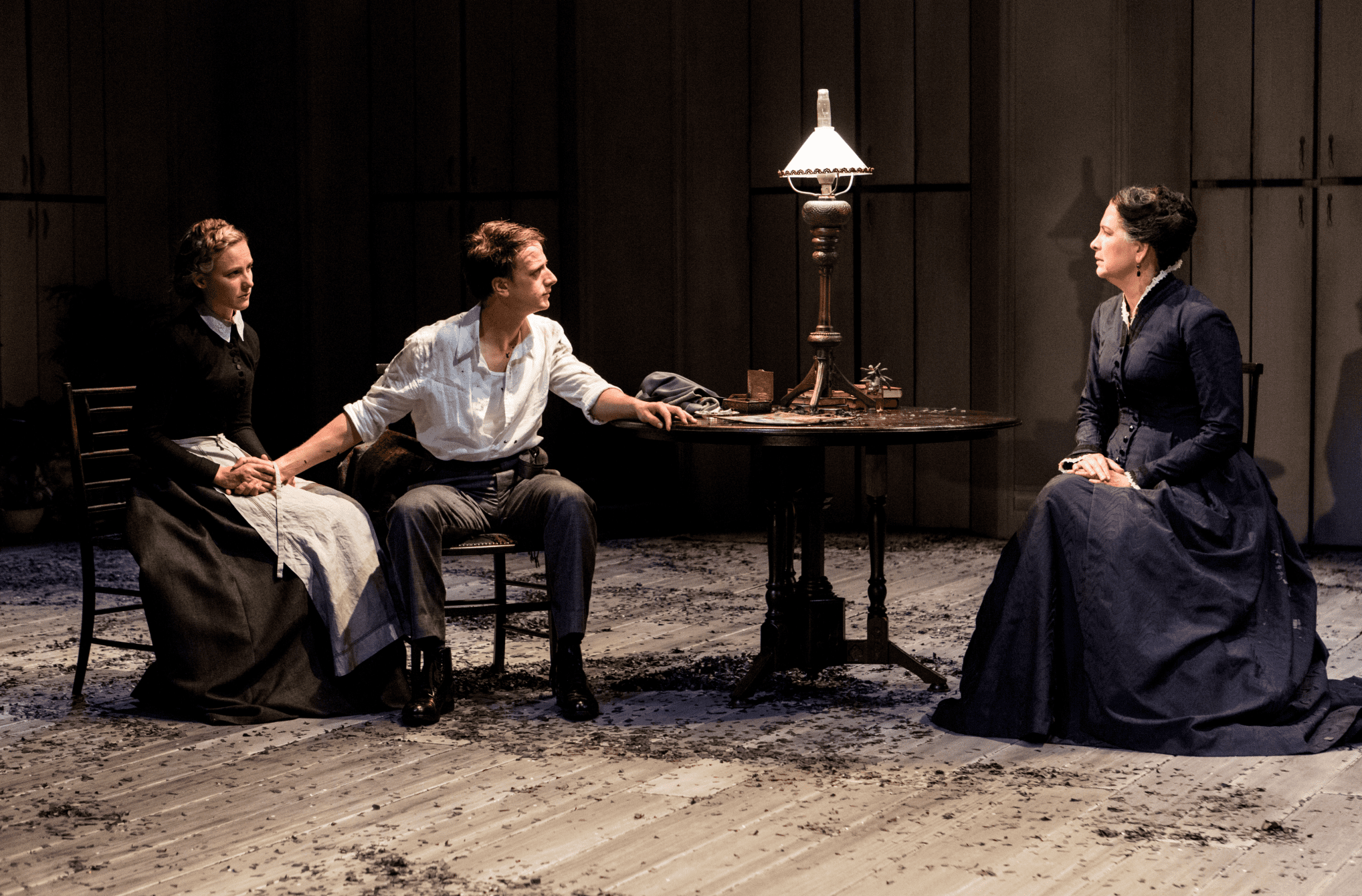/ Conversation
BELVOIR highlights stories of people pushing back against giants on world stage
By Linda Morris, SMH, September 2, 2019
After Prime Minister Scott Morrison defied the odds, the commentators and the exit polls to retain government for the Coalition, Belvoir St Theatre’s Eamon Flack was perplexed about the election outcome.
For insight, Belvoir’s artistic director returned to the first play he directed, Summerfolk by Maxim Gorky, about the complacency of the idle rich to the changes occurring around them in pre-revolutionary Russia.
“[The play] wasn’t on the table until the election when I watched a country claim to believe in a set of new possibilities but then choose the myths of comfort over that,” Flack says.
“A lot of people are confused about what we actually stand for at the moment. Will we always choose our own comfort over what we know better? And the answer seems quite possibly to be ‘Yes’.”
Summerfolk, the only work Flack has returned to direct in 11 years, is located in an anonymous Australian coastal town among well-to-do holidaymakers oblivious to the march of history. It’s one of 10 plays that make up Belvoir’s 2020 season.
“All these giants are bumping around the world’s stage and there is a sense of kind of insanity in the big picture and we’ve found the stories of the program next year are all about people pushing back on a human scale,” he says.
Next year’s program is a mix of classics (Virginia Woolf’s A Room of One’s Own and Caryl Churchill’s Escaped Alone), returnees (Every Brilliant Thing and Jesus Wants Me for a Sunbeam) and important new writing (Cursed).
The creative team behind Counting and Cracking, an epic intergenerational story of a Sri Lankan Australian family that scooped this year’s Helpmann Awards, is back with a new drama.
The Jungle and the Sea returns audiences to Sri Lanka’s civil war, in 1996 and then in the dying months of conflict in 2009 when the Tamil population is caught between the Tamil Tigers and the government offensive.
“It’s about a family that splits – half come to Australia, half stay in Sri Lanka and you follow the fortunes of that family over a 20-year period,” Flack says.
Rather than wait years to collaborate, Flack proposed on the day Counting and Cracking opened in Adelaide that he and creator S. Shakthidharan, known as Shakthi, work on an adaptation.
Flack put up Antigone, a tragedy written by Sophocles about the aftermath of a civil war in which the two sons of Oedipus kill each other. Shakthi proposed Mahābhārata, a Sanskrit epic of ancient India that narrates the struggle between cousins.
“We realised they could work together so we were able to do it quickly because it was an act of adaption as much as an original writing.”
The quick turnaround was aided by their six-year creative partnership. “We’ve grown into each other’s wavelength,” Flack says. It is also a collaboration with the Lingalayam Dance Company, of whom the artistic director is the traditional dancer Anandavalli.
Belvoir posted an operating surplus of $275,000 in 2018, attributed to strong box office results, increased philanthropy and corporate sponsorship and management efficiencies.
If there was a mascot for its 2020 season, Flack nominates Miles Franklin, whose novel of breaking the constraints of Edwardian womanhood is to be adapted by rising playwright Kendall Feaver (The Almighty Sometimes) with Nikki Shiels cast as the young Franklin.
Miss Peony is Michelle Law’s follow-up to her hit show Single Asian Female, about a woman who is urged by her grandmother’s ghost to compete in a Chinese community beauty pageant.
Flack likens Law to Nora Ephron, the writer of When Harry Met Sally, for her ability to set up a comic premise, the same sharp eye for human foibles and delight in pointing out hypocrisy.
Given the squeeze on arts funding in the small to medium arts sector, Flack says it was incumbent on Belvoir to develop artists and new works.
“There’s less opportunities for young artists, and there is less opportunity for artists outside the mainstream,” he says.
